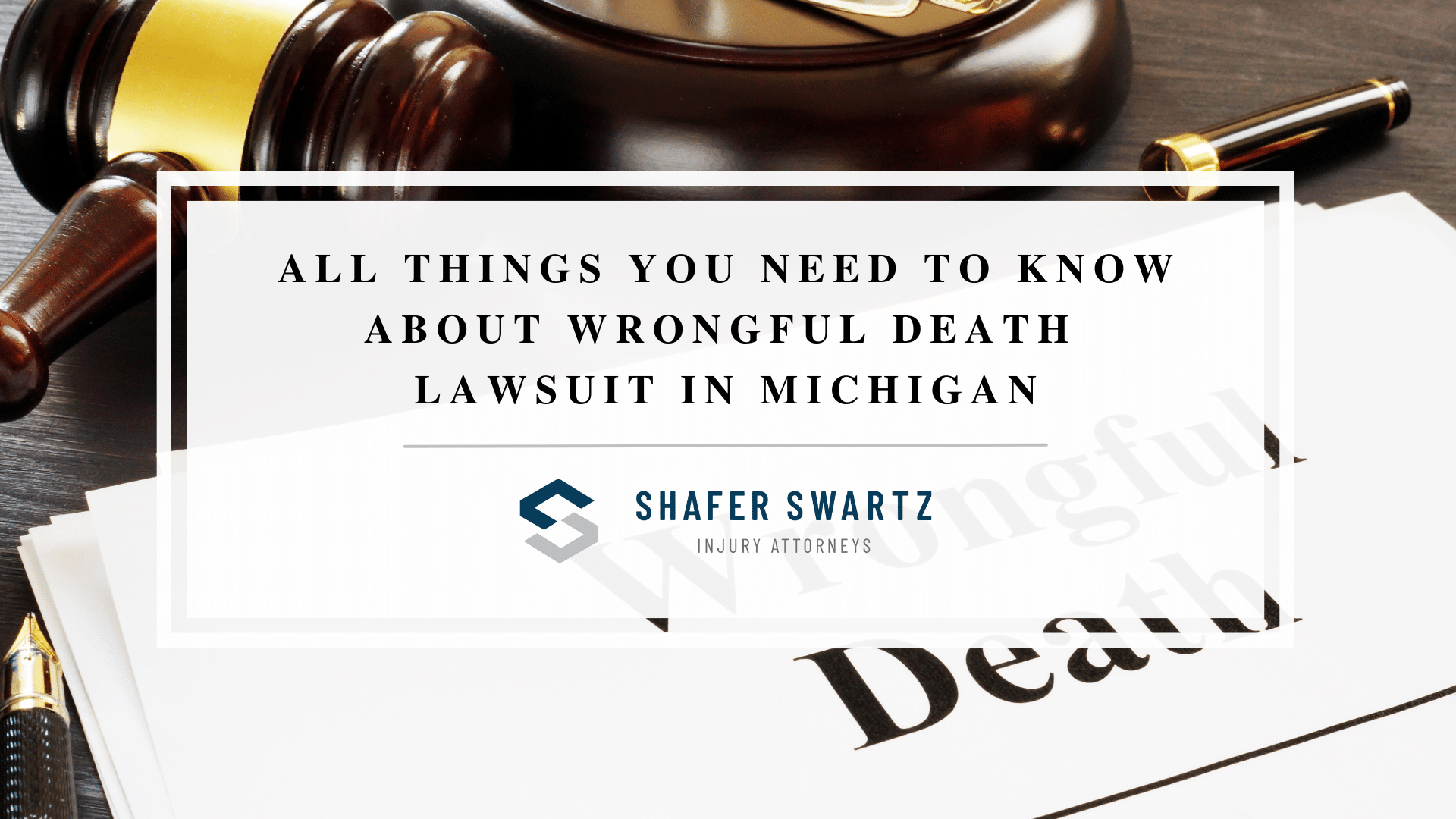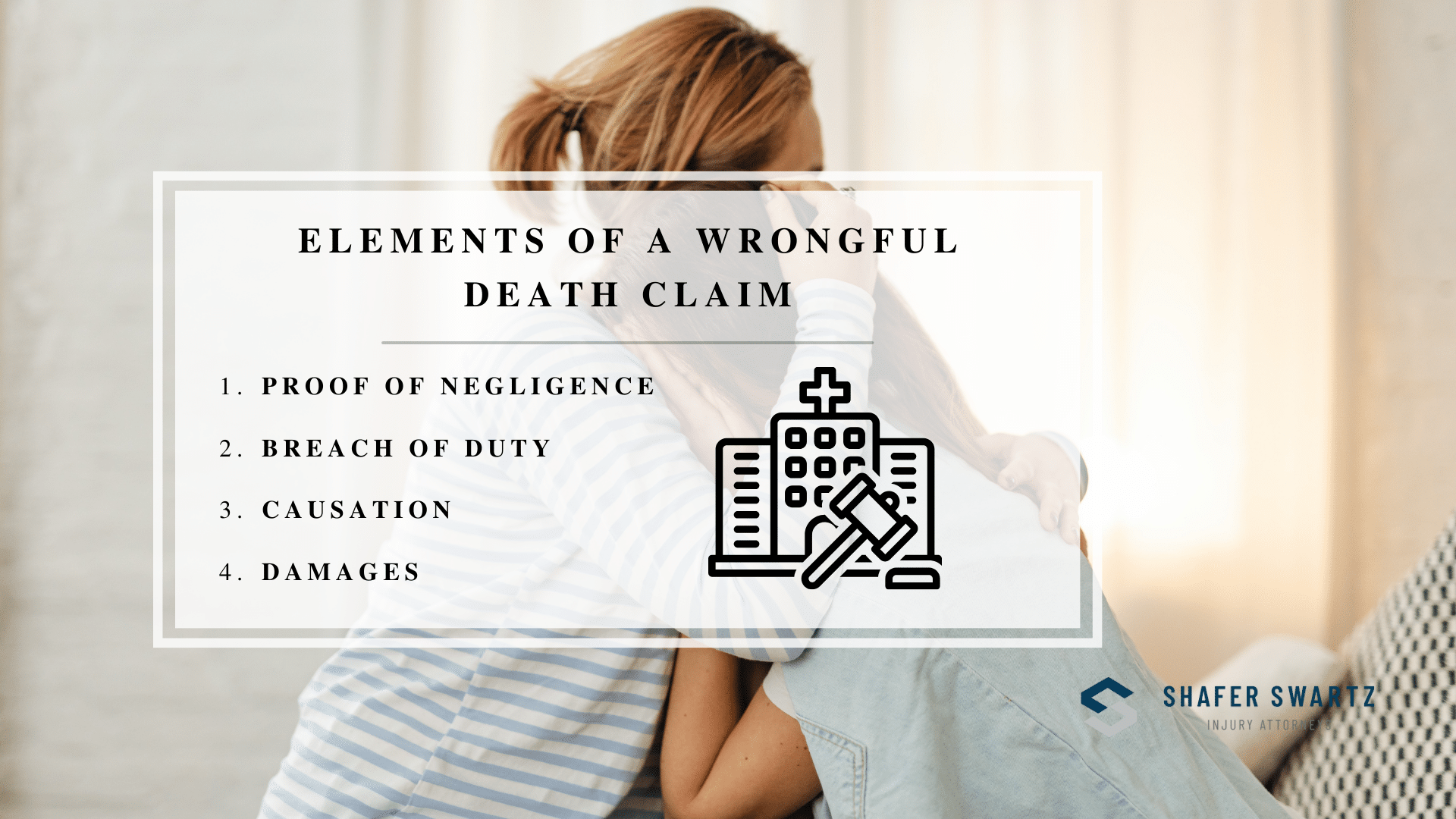
What Is Wrongful Death
Wrongful death refers to a civil case filed by the representative of a person who died due to another person’s negligence or misconduct. The surviving family of the victim has the right to file a claim for damages for their losses, suffering, and harm caused by the victim’s death. It can be filed concurrently with a criminal case for the same incident.
Michigan Wrongful Death Statute
Michigan law defines wrongful death as caused by “wrongful acts, neglect, or fault of another.” A person or a corporation can face a wrongful death lawsuit when they cause harm, leading to the death of another person. A wrongful death lawsuit is filed under medical malpractice laws when a medical professional’s negligence results in death. A wrongful death claim can be made after a car accident caused by negligence. A claim can also be filed if the act was intentional, such as in a crime. To learn more, it’s best to consult with a wrongful death lawsuit Michigan lawyer who is knowledgeable with state laws.
Elements of a Wrongful Death Claim
In Michigan, there are four elements to proving a wrongful death claim. These principles apply to other types of personal injury claims as well. You can consult a Muskegon personal injury lawyer for more details.
1. Proof of Negligence
The deceased’s party bears the burden of proving that the defendant acted negligently, carelessly, and recklessly. To establish “gross negligence” in court, there must be proof that the defendant flagrantly disregarded his actions and obligations or purposely harmed another person.
2. Breach of Duty
Proof must be presented to show that the defendant violated some duty or responsibility. For example, in cases of wrongful death caused by medical malpractice, there must be proof that the health professional acted contrary to the standard of care expected of them. If the case involved a fatal car accident, there must be proof that the defendant breached the duty of a responsible motorist.
3. Causation
This element is sometimes the hardest to prove. Causation to death means proof that the defendant’s negligent actions and breach of duty led to the victim’s death. Proving negligence is insufficient if the plaintiff cannot prove that the defendant’s fault led to the wrongful death.
4. Damages
There should also be proof showing the damage the victim and the surviving family incurred due to the incident. These proofs include medical records, police reports, hospital and medical bills, loss of financial support, etc. These factors will affect the amount of compensation the beneficiaries receive.
Additionally, it’s important to note that Michigan follows the “modified comparative negligence” system, which weighs the faults of both parties involved. The court can reduce the damages and compensation if it finds that the deceased was at greater fault than the defendant.
Statute of Limitations for Wrongful Death in Michigan
There is no definite wrongful death statute of limitations under Michigan law. Instead, it uses the underlying cause of action as the basis for the time allowed to file the case. Therefore, the general 3-year rule for a person’s death or injury due to negligence is commonly used in wrongful death cases. However, wrongful death cases due to medical malpractice typically have a statute of limitations of 2 years. These factors may seem complicated, so it’s best to consult an expert Muskegon personal injury lawyer.
Who Can File a Wrongful Death Lawsuit in Michigan
Under Michigan law, an “executor,” or the deceased’s personal estate representative, can file a wrongful death lawsuit. After filing the case, the executor has 30 days to notify the family members entitled to damages. The following are the people who can receive damages:
- The deceased’s spouse and children
- Parents and grandparents
- Brothers and sisters
- Beneficiaries of a living trust or will
Damages Recoverable for Wrongful Death in Michigan
Michigan courts or juries have the authority to award “fair and equitable” damages, which may include the following:
- Reasonable medical and hospital expenses
- Funeral and burial expenses
- Pain and suffering the deceased experienced leading up to their death
- Loss of financial support
- Loss of society and companionship or the love, care, affection, and so on that the family lost due to the incident
Benefits of Hiring a Wrongful Death Lawyer in Michigan
Michigan’s wrongful death law can be complicated, and winning a case can be challenging if you don’t have the right legal support. At Shafer Swartz PLC, we have a group of skilled wrongful death lawsuit Michigan attorneys who are experts on state laws. We’ll give you our sympathy and support to help you win your case. Reach us at (231) 722-2444 to schedule an appointment.

